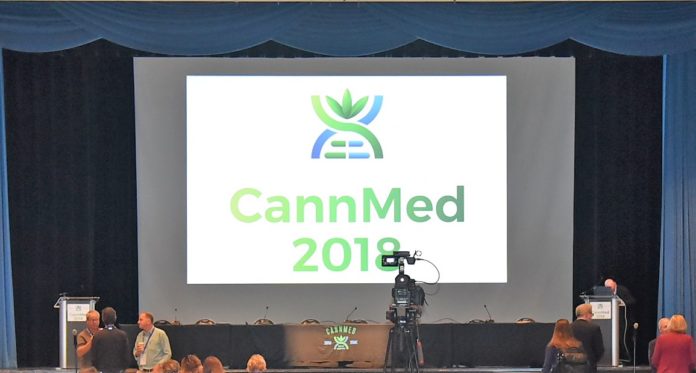LOS ANGELES – The 3rd annual CannMed conference took place last week at The UCLA Luskin Conference Center at The University of California in Los Angeles (UCLA). Sponsored by Medicinal Genomics (MGC) and DASH, a digital currency, the three-day event brought together over a thousand scientists, clinicians, and business leaders in an atmosphere of collegiality and cooperation unlike most other events in the cannabis space.
Rather than focus on business or policy, CannMed lets the world’s top medical cannabis researchers present their latest findings on the efficacy of treating a variety of conditions with cannabis, clinicians share case studies and other information collected while treating patients with cannabis, and industry leaders reveal how they are adopting new testing methods and technologies to create products that move the industry forward and improve people’s lives.
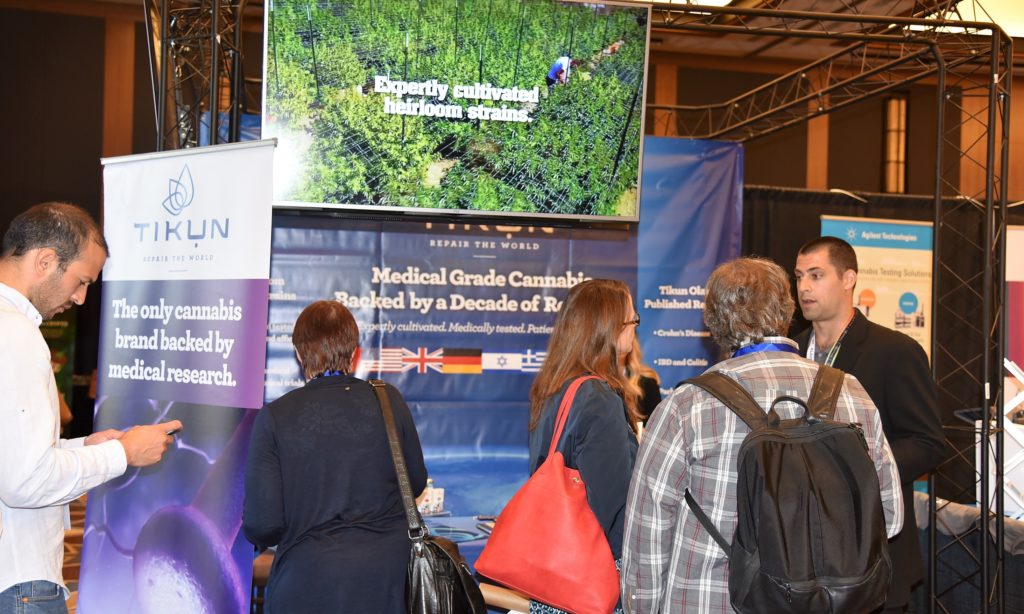
A modest exhibit hall contained booths for 20 or so companies, including Papa & Barkley, Advanced Nutrients, Tikun, DASH, Medicinal Genomics, and other sponsors of the event. The section also included a wholly unique area where large poster boards displayed summaries of cannabis-related research, allowing attendees to take as much time as they needed to absorb often complex information. The researchers themselves were often there to answer questions, as well.
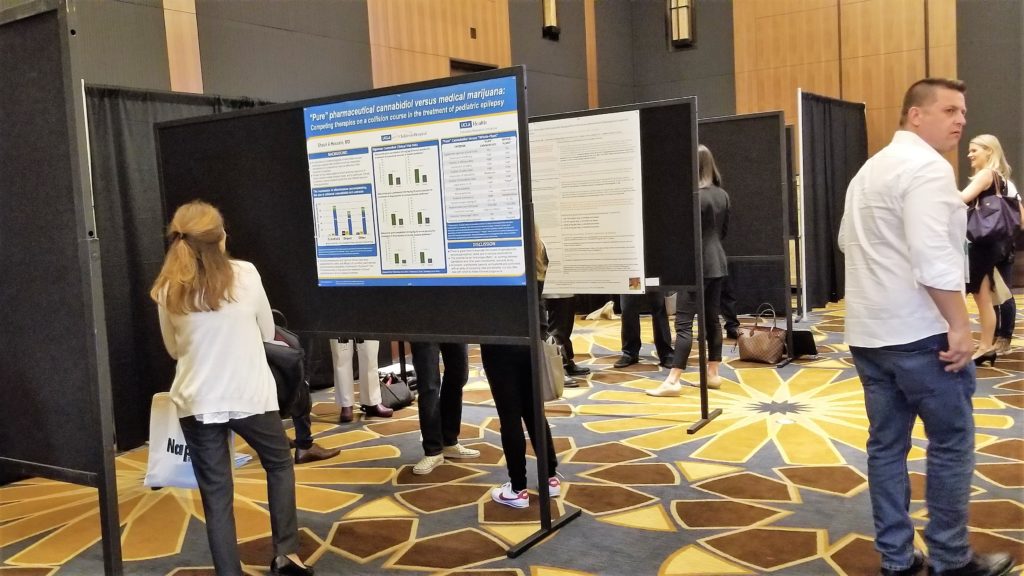
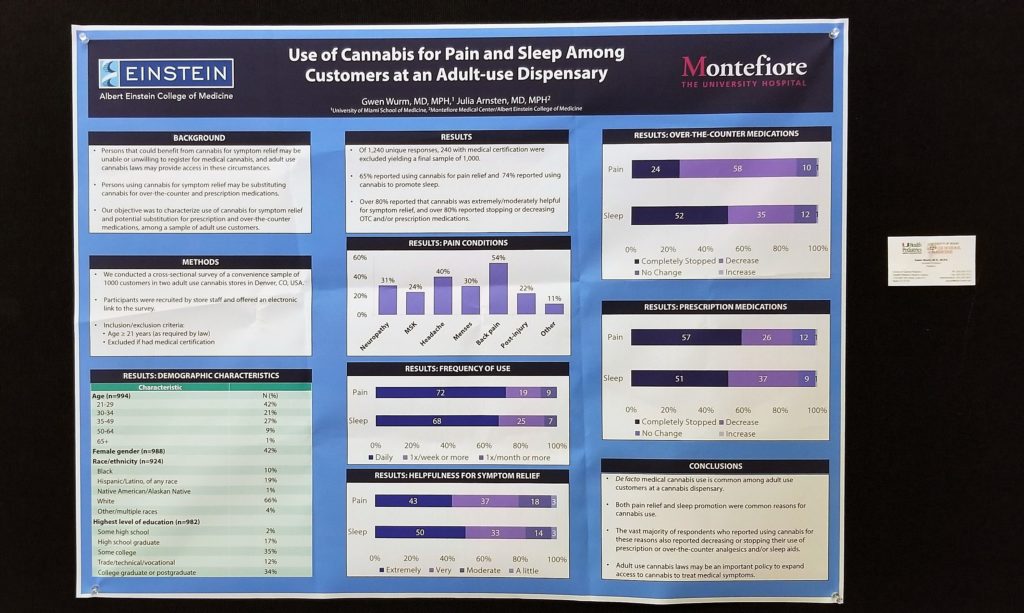
“At CannMed Events, we take our speaker selection process very seriously,” show organizers appropriately warn. “All of our invited presenters, abstract presenters, poster presenters, and panel moderators were approved by our advisory board based on their topics’ scientific merit and originality. Presentations that serve only to promote products or companies have no place at CannMed Events. It is because of these high standards and approval process that we truly believe the education platform at CannMed 2018 features the greatest minds in cannabis research.”
Session topics reflected a similar expectation of excellence. They included:
– Treating Cancer with Cannabis
– Treating Neurological Disorders with Cannabis
– Treating Pain and Opioid Addiction with Cannabis
– Cannabis and Women’s Health
– Applying Cryptocurrency and Blockchain Technology to the Cannabis Industry
– Developments in Cannabis Genetics
– Cannabis Regulations and Safety Testing Techniques
– Innovations in Cultivation and Product Development
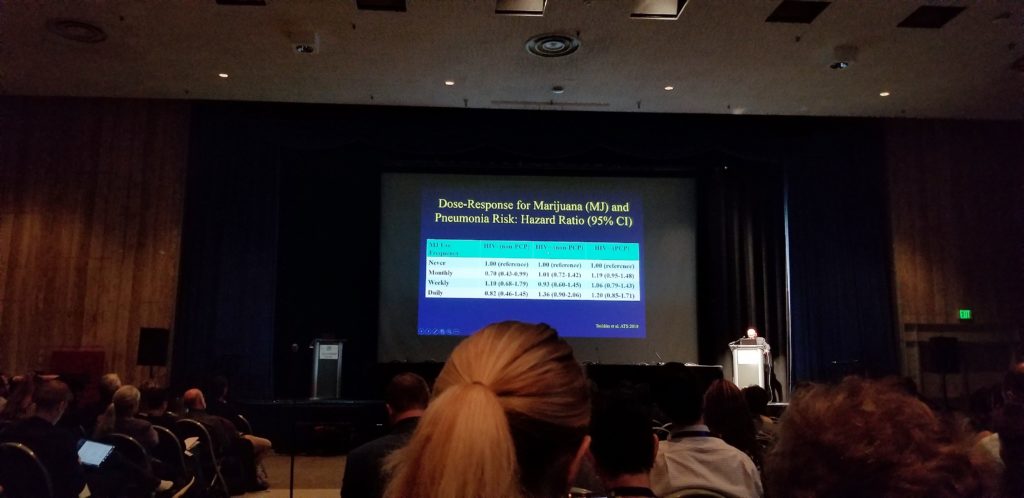
Individual presentations were limited to about 15 minutes, an ideal amount of time for most people. One included a report by Dr. Donald Tashkin from UCLA’s David Geffen School of Medicine on “Marijuana Smoking and Pneumonia Risk: Findings from the Multi-Center AIDS Cohort Study.” Supported by a slideshow, Dr. Tashkin walked the audience through a series of disturbing photos of impacted lungs, such as the mucus secreting epithelial (goblet) cells of habitual cannabis smokers. These are images one only need see once, though Dr. Tashkin did conclude (to one’s great relief) that habitual smoking “does not appear to increase risk of pneumonia.”
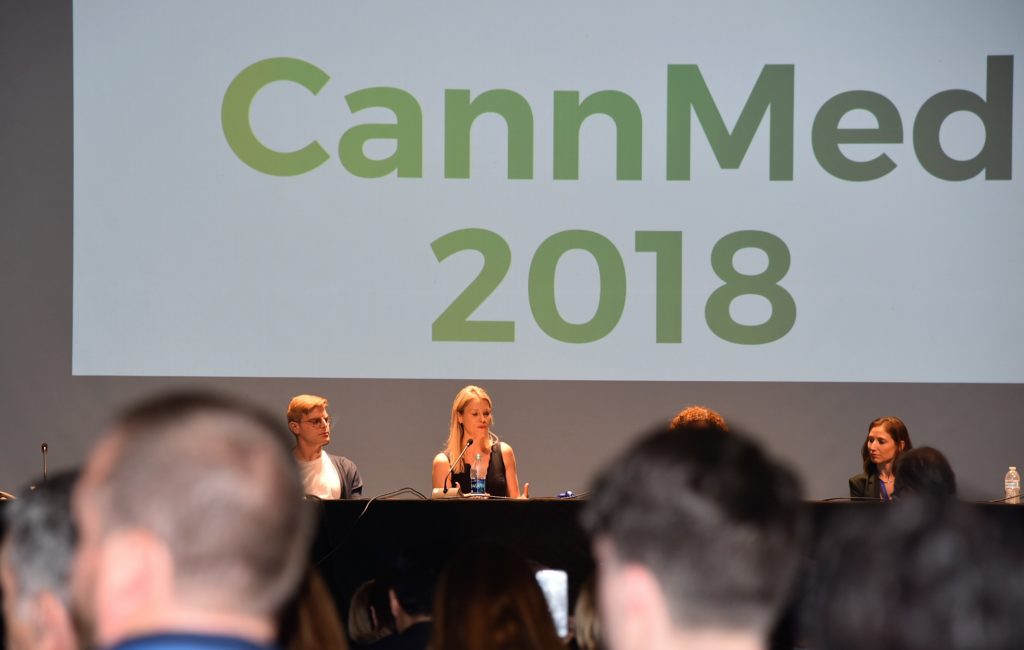
As informative as the presentations were, one of the more visceral sensations from CannMed 2018 was the experience walking from the exhibit hall in Luskin Conference Center to Ackerman Union, where the speaker hall was located. Handwritten signs led the way, a good thing as students swarmed the pathways like schools of fish, moving swiftly along the leafy grounds and inside the student union itself, oblivious to the fact that cannabis was the topic of discussion in their auditorium. One could not help wondering what all the concern is about if the objects of such intense worry by society are themselves so worry-free.
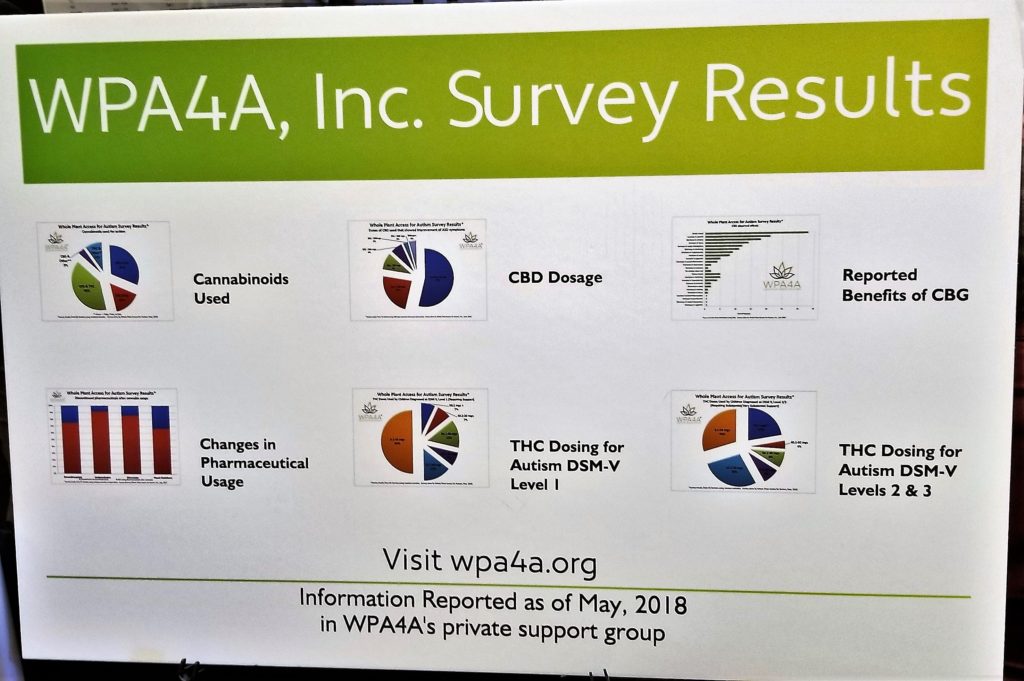
An exhibitor, a nonprofit called WPA4A, short for Whole Plant Access for Autism, was founded by a group of mothers of children on the spectrum who had experienced the seemingly miraculous benefits that cannabis can provide, and formed an organization with the goal “to help families discover the benefits of using legal, medicinal cannabis to give their loved ones on the autism spectrum the best quality of life possible.” (wpa4a.org)
One of the mothers holding down the booth said their purpose in attending CannMed was to encourage more researchers to engage in cannabis research, and as vitally, to convince the medical community to cease stigmatizing such research. Judging from the audience in attendance and the quality of the presentations, CannMed 2018 succeeded in advancing those worthy goals.







